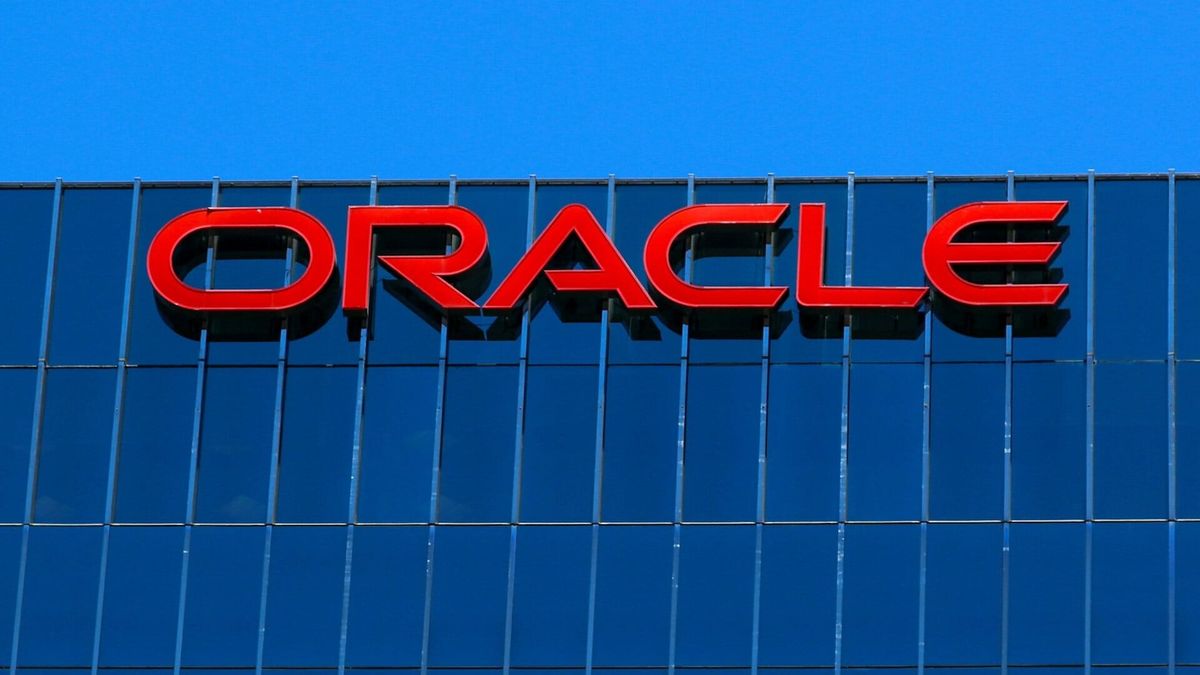The other element that boosted the shares was probably the announcement of the results of the first quarter of fiscal 2025. According to the report, total revenues for the period increased 7% year-on-year in dollars, reaching US$13.3 billion. Profits from cloud services, on the other hand, increased 21% year-over-year in dollars. The company, however, does not clarify what part of its turnover comes from Latin America (or Argentina).
The partnership with Amazon came after, in previous years, Oracle signed agreements with the other giants in the sector: Microsoft Azure and Google Cloud Platform. The solution that Oracle now promises is “multicloud”, that is, the possibility of combining services from several clouds to optimize costs, functionality and performance. Additionally, if users decide, they can move data between different clouds and Oracle would not charge for that move, he told Scope Clay Magouyrk, executive vice president of OCI development, Oracle Cloud Infrastructure Development.
Ellison also announced that Oracle is building a data center with “acres of Nvidia GPU clusters to train large-scale AI models.” The executive also said that, by 2025, the security of all databases will be fully automated. “No human labor, no human error”said in his presentation: “Without human work, there are no human errors.”
“Autonomous database is something we have been working on for many years and we have been using machine learning algorithms to help do the maintenance, management and optimization work,” said Magouryk, who noted that the vast majority of Security breaches are due to human error and that hackers are using AI to find vulnerabilities.
“As the cloud got bigger and bigger, the investment we have to deploy also got bigger from a human perspective.”
Magouryk added that the autonomous database has improved “the overall reliability of the underlying systems” and reduced “the amount of human work” on the Oracle Cloud infrastructure itself. “I pay attention to those metrics very carefully and I can say from a first-hand perspective that the autonomous database is truly a game changer. Nobody else in the industry has anything like this”, he concluded.
The Argentine question
In Argentina, the company has been present since 1990 and has about 500 employees. It has important clients, but penetration in the country seems to lag behind other Latin American nations. For example, there are Oracle Data Centers in Mexico, Brazil, Chile and Colombia, but not in Argentina.
“Argentina was already the third largest country in Latin America, it has no reason not to recover,” said Luiz Meisler, executive vice president of Oracle Latin America. He added that the country is going through “a moment of transition” and that it seems that Javier Milei’s government “seems to be going in the right direction, in terms of results, with inflation going down.” However, he said there remain “many challenges.”
“I think it is the first light at the end of the tunnel and there is little left, I think there is little left, hopefully next year we will have it: we will surely go with a Data Center investment there,” he added. Although Data Centers are controversial because they consume a lot of energy and water, company sources indicate that the public clouds that were installed in Chile and Colombia represent “an approximate value of US$100 million.”
Oracle Cloud Infrastructure is a cloud computing service that provides servers, storage, networking, applications and services through a global network of data centers by Oracle Corporation. In addition to public clouds, hybrid or dedicated clouds (i.e., a cloud exclusively for a customer or partner’s data) could be built.
Cristina Lorenzo, general manager of the company in the country, asked for caution regarding the investment: “We confirm things when they are confirmed,” she told Scope. He also clarified that some specific policies and promises of the libertarian government would not be responsible for potential investments in Argentina. For example, he said that the Large Investment Incentive Regime (RIGI) launched by Milei “generates a positive context” because “it makes investing easier,” but that “it is not that Oracle is going to pay attention to that, it was already paying attention.”
While the European Union, the United States and China are already putting AI frameworks in place, the Argentine Congress is just beginning to discuss them. Meanwhile, Demián Reidel, presidential advisor, affirms that “the planets aligned for Argentina to be the fourth world pole of AI” and promises not to approve any regulation that could scare away investors. Asked about this government aspiration, Lorenzo was somewhat skeptical: “We are still going back to talk about a regulation: first let’s put the basics in place”he stated.
According to Lorenzo, Argentina lost representation in the region due to the latest devaluations that the country suffered. ““I know that I have big projects and clients, but nothing… then if I get the pesos I divide it… and no,” Lorenzo said. “So, my challenge, our challenge is not to get depressed with that, but to still generate interesting projects that make our clients happy because we want the country to move forward,” he said. At the same time, he assured that they have agreements and agreements signed with the national government and provincial administrations in education, cybersecurity and hardware structure.
What AI can
At the Oracle WorldCloud, innovative applications of AI could also be seen, beyond its use by consolidated businesses to increase their competitiveness and productivity.
For example, Luxembourg startup RSS-Hydro developed FloodSENS, a tool that uses machine learning to analyze geospatial databases and accurately predict how floods will behave. The technology has already been applied in a coastal area of Japan during a flood in 2020.
“We look at high-precision 3D data, such as buildings and the power grid, and we can map which of them are exposed and impacted by the flood,” he told Scope Guy Schumann, CEO of RSS-Hydro. “You can simulate it and then see the impact analysis. Because it hasn’t happened yet, that would allow you to move your assets around to protect them.” The model can also be used to estimate the impact climate change will have around the world.
Widelabs, a Brazilian company founded in 2020, showed two developments that use Oracle technology: one, promises to become a treatment against Alzheimer’s disease and another, in the living memory of the South American giant.
The first one is called bAIgrapher and it is a way of reminiscence therapywhich consists of patients with Alzheimer’s and other cognitive diseases remembering events from their lives. The Widelabs application makes it possible, using texts and audios from family members as input, to create a patient biography in seconds, either as a printed book, audiobook or ebook.
“Imagine that I am doing this for my dad, that my dad is losing part of his memory. So, we invite loved ones, family members, the community, friends to write or record stories from their perspective,” exemplified Nelson Leoni, CEO of Widelabs. “Every time the patient listens to or reads their memory, the door of memory opens and helps to fix it. This brings security and quality of life for the patient, family and caregivers.”
For Leoni, the main difference between a biography written by a person and one made with AI is time, a precious commodity for Alzheimer’s patients. He knows this firsthand, because he wrote his autobiography, which took him a year.
“This is not a marketing project: it is an opportunity to create the first therapy that uses generative artificial intelligence to help in the treatment of Alzheimer’s,” he added. Leoni said that the results appeared in “patient zero” and now they are doing a clinical study in Brazil with 50 patients. If all goes well, bAIgrapher will be incorporated into the Brazilian healthcare system.
The other project they are developing is called AmazonIA, a kind of “sovereign” ChatGPT that encompasses information on the culture, politics and history of Brazil. “We train it with millions of private content from anthropologists and scientists,” Leoni said. “It is an extensive language model (LLM) with a Brazilian perspective, not with the perspective of another country.”
For Joao Pacheco, Oracle vice president for the public sector in Latin America, governments are “natural candidates” to ally with the company. “Each country and major customers can have their own cloud region,” he says. For example, he says Brazil recently signed up to have a “dedicated region” of the cloud, and he thinks our country could have one too. “The issue is a strategic asset for any country — whether for security reasons or sovereignty,” said Pacheco, adding that centralizing the data and using AI to analyze it will help provide more efficient services.
“No one knows the impact that AI is going to have, how it is going to make everything more efficient and more automated. But I have one certainty: it is going to be a very fast thing. “It is not a ten-year issue,” said Pacheco.
Source: Ambito
I am an author and journalist who has worked in the entertainment industry for over a decade. I currently work as a news editor at a major news website, and my focus is on covering the latest trends in entertainment. I also write occasional pieces for other outlets, and have authored two books about the entertainment industry.




